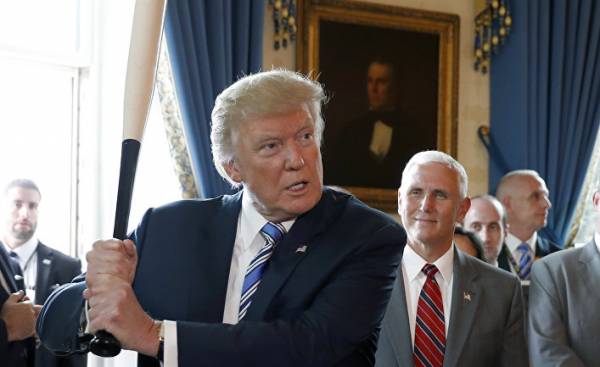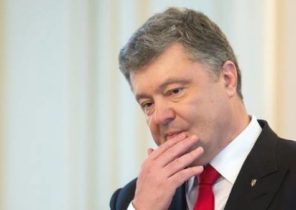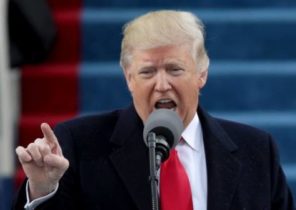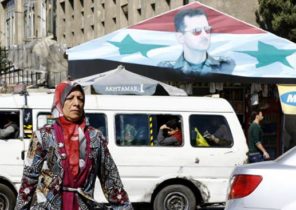
Imagine a three year old sitting in a parked car. Imagine what he can do! To turn on and off switches. To turn on the light. To turn on the wipers. To turn on the radio. Almost all — but not to start the car to somewhere to leave. For this he needs the petrol in the tank, long enough legs to reach the pedals “gas”. But first of all you need to know how to drive.
Now think about how President trump controls US foreign policy. Imagine it in this policy can do! To make statements on Twitter. To speak with terrible threats from your Golf resort. To entertain foreign leaders chocolate cake in Mar-a-Lago. Almost all — but not to achieve tangible success. For this he needs real tools: planning, processes, diplomats and allies. Without them, nothing happens.
It’s not my metaphor. It was invented by a friend of mine — frustrated by the official who for the past six months watching how the U.S. is losing influence. But with the help of this metaphor can perfectly explain the events of the past few days. Trump is a little child in the car. And the other members of the administration — or, at least, some of them are the adults trying to keep the movement of American diplomacy in the right direction. Although all of the necessary tools, none of them either.
Before we explain, it is worth repeating: simple military solution to the problem of North Korea does not exist. All decisions unilaterally plans a preemptive strike mean high risks. North Korean missiles hidden underground in the mountains or mounted on mobile launchers, not easy to detect. But even if we manage to inflict on him a blow, then retaliate with the use of conventional weapons in the affected area could be the South Korean capital Seoul with a population of about 25 million people. And if anyone decides to mount a surprise nuclear attack, then this city is similarly threatened by radioactive fallout.
The only realistic solution to the problem is still the policy of containment (the one which for nearly 45 years was used against the USSR), in combination with sanctions, diplomacy and the new campaign for the protection of the rights of citizens of the DPRK. But to campaign for the protection of human rights required a state Department that believes in human rights, and the state Department, which is headed by the Secretary of state Rex Tillerson, does not believe in them. For the implementation of diplomacy requires diplomats, but considering that South Korea is no Ambassador, and the Secretary of state no assistants arms control, or Asia, diplomats from the state Department either.
Sanctions work better, perhaps because the administration has appointed a UN Ambassador Nikki Haley (Nikki Haley). Last week, the UN Security Council voted to impose new sanctions against North Korea, and this decision will allow to increase pressure on the regime. But in order to feel the effect of sanctions will take a long time. But if the rhetoric and behavior of the President will undermine the unity of the international community, sanctions won’t work at all.
Because, in order for deterrence to be effective, careful with words. Statements such autocratic ruler, paranoid as Kim Jong-UN must be very clear: if you launch a nuclear missile that kills people, we will strike back with overwhelming force. If you make the rocket launch a provocative way, we will act more balanced and will inflict commensurate retaliation. The Minister of defense of Jim Mattis tried to send such a signal when called upon North Korea to “cease its consideration of measures that will lead to the destruction of its regime and the death of its population” and to “abandon the pursuit of nuclear weapons.”
Trump, by contrast, continues to speak as if he has no diplomats or generals, though his words were not preceded by neither political nor even a thought process. His statement that he speaks in between rounds of Golf, that any “threat” from North Korea the U.S. is ready to respond “with fire and rage,… the likes of which the world has never seen before”, is a dangerous uncertainty. What he has in mind when talking about “threats”? North Korea threatens all the time and does so for several decades. What he means by the words “fire and fury”? Almost immediately Tillerson, in an effort to correct this mistake, told the Americans (not South Koreans) that they should “at night, sleep well”, because he has no “concerns about this rhetoric,” apparently referring to this presidential rhetoric. The President then made an even louder statement, warning that North Korea “with people happens what they even could not imagine”
This is unlikely to contribute to resolving the problem. Frankly, the President has abandoned his most important tool — the ability to act as a last resort, the last rung on the ladder of escalation. Threats should begin at the lower levels, rise to the level of the Cabinet of Ministers and, finally, voiced by the President only when the situation truly dangerous. And his words should sound very seriously. Instead we have a President, from angry words which can simply dismiss even his own Secretary of state. Trump has many times lied on so many issues, so many exaggerated and pompously ranted that even the North Koreans laugh at his “horrible” words, considering them “absolute nonsense.” He has no authority and therefore he is like a child sitting in a parked car — it can’t accomplish any normal threats. His words may frighten Pyongyang, but with the same success, and to spur it — and, most likely, only will increase the danger for all of us.







